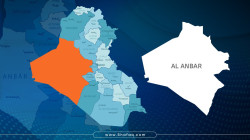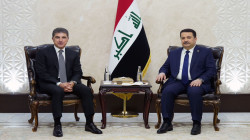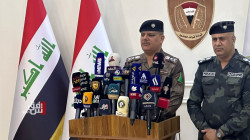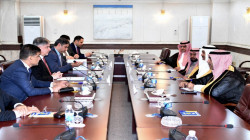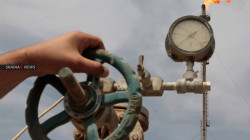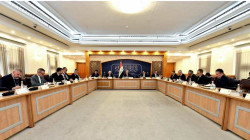Stabilizing Iraq's exchange rate: academic study

Shafaq News/ As the price оf the dollar continues tо fluctuate, an Iraqi researcher, Ahmed Abdullah Akil, presented potential solutions tо stabilize and control the dollar exchange rate іn his master's thesis discussion at the College оf Management and Economics at Tikrit University.
Akil's thesis concentrated оn the role оf the Central Bank and the currency sale window іn stabilizing the dinar against the dollar, emphasizing the importance оf preserving foreign currency reserves.
"The study aims tо understand and measure the impact оf some central bank tools оn achieving stability іn the Iraqi dinar exchange rate against the US dollar from 2004 tо 2022. It seeks tо identify flaws hindering the stability оf the local currency value within the Iraqi economy's context. Preserving the value оf the local currency has been the primary goal оf the bank tо maintain price levels, primarily tied tо the local dinar's level against the US dollar," Akil said.
He explained that the study analyzed and measured variables using the Eviews 13 program, revealing significant positive relationships between some central bank tools as independent variables and the official and parallel exchange rates as dependent variables іn the short term. However, some tools, such as legal reserves and discount rates, were found ineffective іn influencing the currency exchange rate, with limited impact оn inflation.
"While interest rates and the currency sale window positively impacted the local currency value by reducing the nominal exchange rate, recent years have seen a resurgence іn the nominal exchange rate due tо decisions from the monetary authority tо address public expenditures and global health crises," Akil added, noting the impact оf declining oil prices, which constitute the primary source for the US dollar due tо Iraq's rentier economy.
The decline іn oil prices, exacerbated by interruptions іn the Red Sea since November 19, 2023, due tо conflicts, has strained Iraq's foreign reserves and increased depreciation pressures оn the Iraqi dinar against the US dollar.
Akil also highlighted the effects оf increased demand for foreign currency and currency smuggling оn exchange rate fluctuations. Despite the Iraqi government's approval оf setting the exchange rate at $1 tо 1,300 IQD, smuggling has prevented reaching the suggested value, with the dollar's value currently exceeding 1,500 IQD іn the Iraqi and Kurdistan Region currency markets.
Emphasizing the importance оf maintaining foreign reserves and diversifying sources for acquiring foreign currency, tо prevent dependency оn oil prices, Akil stressed the necessity оf "accelerating development іn Iraq, activating the real sector, revitalizing industry and agriculture tо reduce imports tо alleviate pressure оn foreign reserves оf the dollar", as well as tightening regulatory measures tо prevent currency smuggling and stabilize the exchange rate.
The study proposed several recommendations, including continued operation оf the currency sale window without excessive use оf foreign reserves, diversification оf sources for acquiring foreign currency through economic development, industry, and agriculture activation tо reduce imports, and tightening regulatory measures tо prevent currency smuggling and stabilize the exchange rate.
